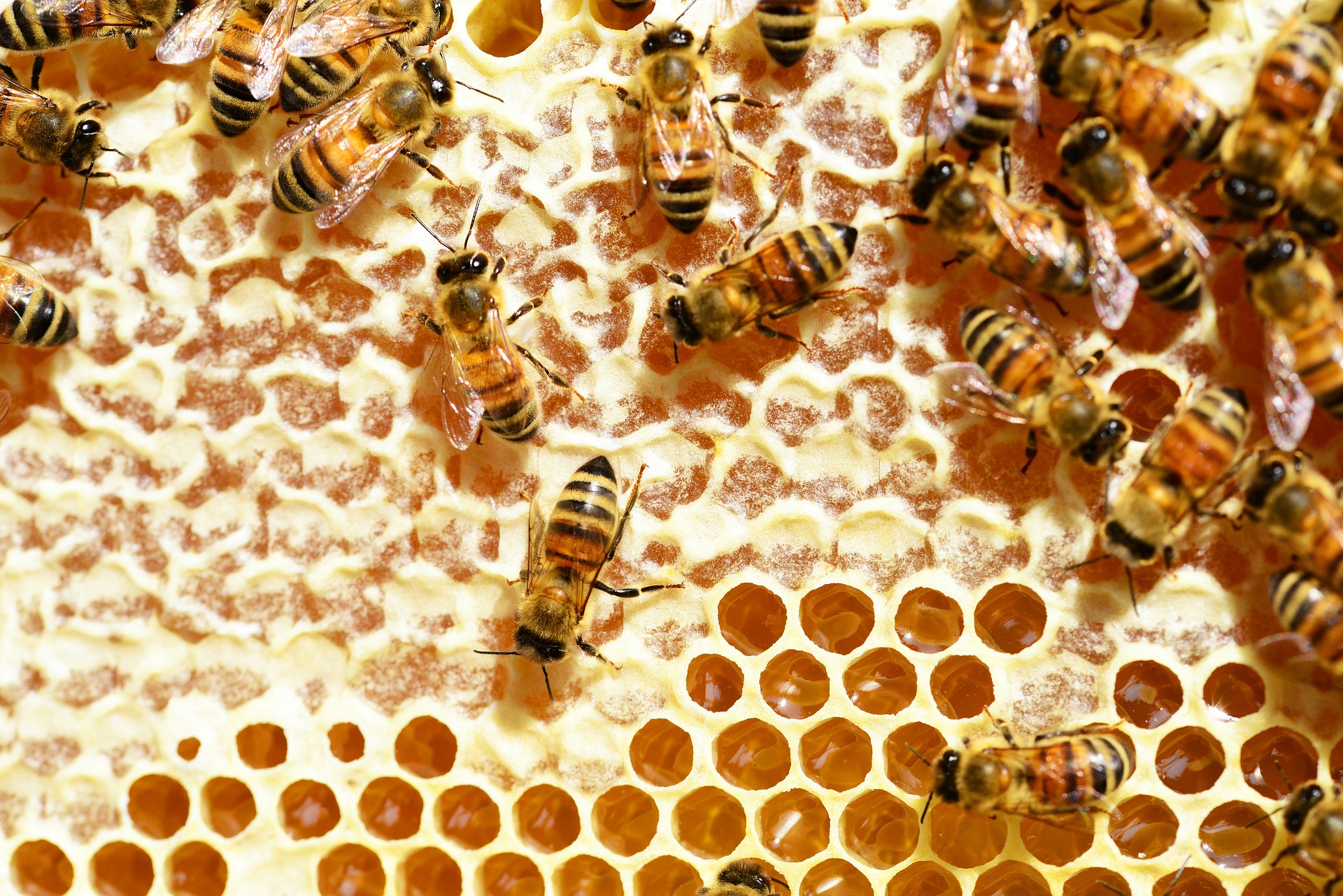Improving livelihoods by professionalising the beeswax supply chain
Beekeeping is a promising economic activity in many African countries, offering households an additional source of income. Contrary to common belief, beekeeping provides far more opportunities than just the production and sale of honey. A beehive yields various valuable products, including beeswax, pollen, propolis, venom, and royal jelly. Beeswax, for instance, is not only used to make candles but also in the garment industry and cosmetics production. Pollination by bees offers significant benefits for agricultural yields. For instance, studies indicate that placing beehives in cashew orchards can substantially boost cashew production.
Koster Keunen (KK), a global leader in processing, refining, and marketing natural waxes, is professionalizing the beeswax supply chain across West Africa. With support from FairMatch Support and their implementing partners, KK continues to strengthen the value chain by promoting sustainable beekeeping practices that allows beekeepers access to premium markets and increased income.

Sustainable beeswax is understood as beeswax that helps beekeepers to improve their household income from their beekeeping activities while keeping an eye on the preservation of nature by caring for their colonies and the environment in a proper way.
Towards a traceable supply chain
Before Koster Keunen started its operations in Nigeria and Burkina Faso, the precise origin of beeswax was not fully known as most beeswax could only be traced back to village level, with no or limited record keeping. However, traceability is key to promote sustainable beekeeping. Without proper documentation, essential details about beekeeping remain unknown, such as the number of beehives, their productivity, location, available bee forage, and how hives are managed. This lack of data made it challenging to implement targeted improvements across the value chain. To address this challenge, KK has started investing in improving the organisation and traceability of the value chain. For that, a Management Information System (MIS) has been developed and implemented to increase traceability by improving the structured data collection across the supply chain. Developed in collaboration with actors at various levels, the MIS is tailored and is continually finetuned to fit their realities on the ground.
Professionalising supply chain actors
To strengthen the supply chain and to make it future-proof, the involvement of all actors is essential. The project aims to professionalise operations and enhance the organisational capacity of each supply chain actor. To support this goal, a diagnostic tool has been developed to assess the strengths and weaknesses of each participant, allowing for tailored support to progressively build their organizational skills. For that, a structure of using focal points was developed to offer appropriate support.
As a next step, the project is supporting cooperatives and aggregators to develop and implement a Service Delivery Model (SDM) targeted towards beekeepers. With data collected through the MIS, the SDM allows cooperatives and aggregators to measure the performance of the beekeepers and offer tailor-made services to improve their performance in a structured manner.
Leveraging additional benefits of beekeeping
In addition to training beekeepers on improving the quality and quantity of their beeswax through better hive management and promoting sustainable beekeeping practices, the project aims to create additional income streams for them. A key opportunity lies in developing a profitable business model in which cashew farmers pay beekeepers for pollination services, rather than charging them for placing hives in their orchards. In return, the cashew farmers would benefit from higher yields through bee pollination, while beekeepers in organic-certified orchards could explore the production and sale of organic beeswax. To make that case, the project started with monitoring the impact of pollination on cashew production to develop an evidence-based and viable business model that is tailored to the local context of Burkina Faso and Nigeria.
However, beeswax only constitutes 20-25% of the beekeeping income for a beekeeper, while the honey production generates the lion’s share of the revenue. Therefore, to further support the production and marketing of sustainable beeswax, it is important to also consider and take along the marketing of honey. Therefore, we are currently analysing the honey markets in Burkina Faso and Nigeria to identify opportunities for market development.
Fostering learning
There is no one-size-fits-all approach. The project operates in different countries, each with unique settings and actors that influence the project’s implementation. However, the varied starting points and challenges can lead to valuable insights or approaches that may benefit other countries. To encourage collaboration, a learning platform has been established to facilitate exchange between countries and actors, accelerating implementation by avoiding the need to reinvent the wheel. For instance, the steps taken in Nigeria to implement the mobile MIS application could inform efforts in Burkina Faso, where producer organizations are yet less organized and digitalized.
They are willing to make a true difference in sustainable business
We work worldwide with a variety of agricultural products. Our programs are always conducted in cooperation with our global network of like minded local business development organisations.

